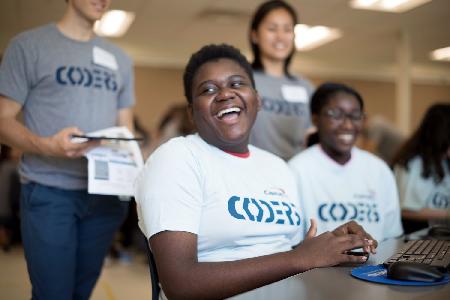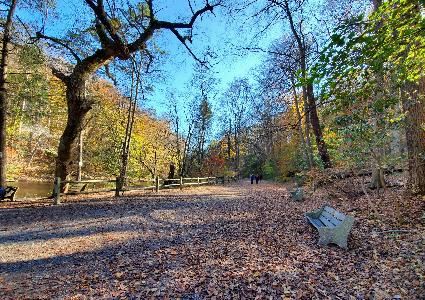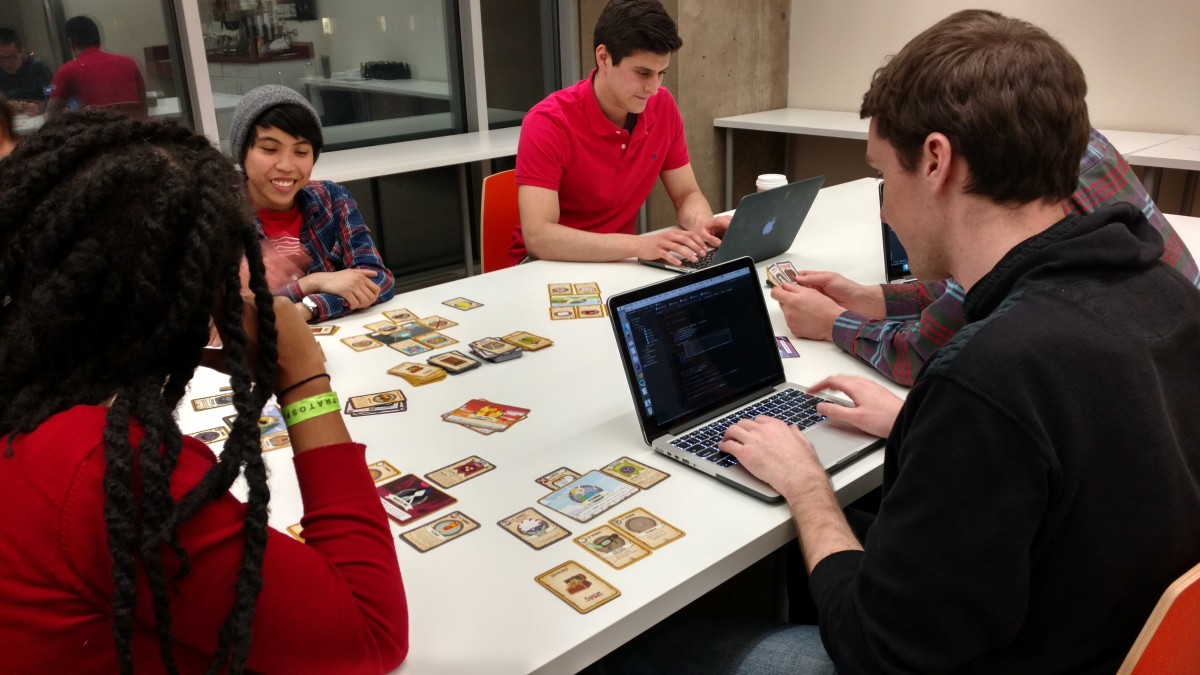In the 1990s, the technology business boom was largely defined by distance. Once made of academic and military research, Silicon Valley first went mainstream and became known as the incubator for Internet infrastructure for which all other regions pined. Web and software development was still relatively inaccessible, hosting and market launch was still relatively costly. In short, tech entrepreneurship wasn’t something for everyone.
Businesses that were built outside of the Bay Area, then, were largely of moneyed interest and enterprise-minded, if they lasted at all.
National trends have changed things here and throughout the country:
- Knowledge transfer: Those who experienced the 1990s dot com boom on the West Coast and elsewhere brought those lessons back to new cities and regions countrywide. Blogging investors, public speaking entrepreneurs and others have made wisdom more accessible.
- Mass scale: Technology adoption has accelerated and Internet culture has gone mainstream (Shark Tank is a popular reality show), bringing new customers, supporters, employees and evangelists to the community.
- Support network: A painful recession, high unemployment and high-profile Internet success stories have all helped to bring entrepreneurship back into vogue. That’s welcomed back service providers, new investors, accelerators, entrepreneurship programs and the like.
- Communication adoption: After decades of buzz, video conferencing, social media, targeted advertising and the like have made customer acquisition less and less driven by location.
(Watch these first snippets from ‘Conversations in Tech’ on Philly in Focus here.)
This means that Philadelphia, like cities big and small across the country, are trying to cultivate communities of innovation. As mobile company Artisan CEO Bob Moul said: “In an economy like this, we don’t have a choice.”
In Philadelphia, its business climate, intra-regional relationships (read: city/suburbs siloing), post-industrial decay, longstanding outside perception and talent loss have kept it a laggard in the national new tech hub arms race during the last decade, but movement has accelerated in recent years, say many near to it. Is the growth here to last?
When Chris Stanchak founded Center City online ticketing company Ticketleap in 2003, a useful marker for the beginning of this second ‘New Philadelphia’ era of technology business, he had very few resources to support him, he said.
The tech leaders of Musser’s suburban Route 202 corridor had scattered after the 90s bubble burst, and there was very little in the way of an established network of tech entrepreneurs. City government didn’t offer much, either. Before a high-profile Wireless Philadelphia initiative, the City of Philadelphia launched an ill-fated, top-down Innovation Philadelphia to spur creative business. But ultimately, that energy has grown more organically, if slower, than anyone might have expected.
After a hiatus to go back to Wharton, Stanchak returned to build Ticketleap. Others followed and the community of support came with it: Indy Hall began a coworking movement here in 2006, Philly Startup Leaders launched in 2007, DreamIt Ventures in 2009 and, humbly, Technical.ly Philly joined in early 2009, followed by events like Philly Tech Week and Philly Tech Meetup. That community foundation has been joined by institutional support, like the University City Science Center programming for tech entrepreneurship, the City of Philadelphia’s Startup PHL fund and Drexel, Wharton and Temple launching entrepreneurship programs. It continues today, as PACT’s 20th annual IMPACT conference had its first ever early-stage-specific track last week.
The “buzz” that is building in Philadelphia and in other second-tier, non-traditional tech markets is a feeling of movement in a place that had none in the past, said Lucinda Duncalfe, the founder of Real Food Works who has lived through both Philly’s tech booms of the 1990s and today. While entrepreneurs stay heads down on their work, these other resources create the network effect that can help keep them here and help increase their chances of success, she said.
“It’s happening in the city,” said Duncalfe at an Economy League event Friday. “You can’t overstate how important that is, to have the density to bump into someone you need for your business.”
Nearly without exception, tech entrepreneurs speak about location mattering, but the limits are lessening: instead of needing to be headquartered in the Valley, startups can choose a place that works for them.
“We could be in Antarctica,” said Robert Moore, the cofounder of Center City data analytics firm RJMetrics. Moore and cofounder Jake Stein are proudly growing their company in the Philadelphia Building, which has become its own tech hub.
The ‘Rise of the Rest’ is a long-established concept in geopolitics to describe economic growth in the developing world, but earlier this year, Aol cofounder Steve Case brought it to bear on the phenomenon that has seen tech become a staple of every region’s economic development strategy of the moment.
So it comes as no surprise that the jockeying for positioning as the next great tech hub rages on. The almost certain truth is that, in the near term, no one will be the next Silicon Valley.
More likely, mega regions will establish specializations and distinctions and, more broadly, simply get better at being able to retain what talent it imports. For Philadelphia tech entrepreneurs, its biggest strength may be another broad national trend not directly tied to IT: a reviving sense of urbanism.
This city’s brain drain has slowed, and groups have already begun spreading the message of this region’s tech infrastructure to the next generation of leaders. As density and culture and sustainability drive life choices in the way that garages and acreage did so a generation ago, Philadelphia’s old city roots shine brightly.
“You want to be a place that people want to come to, you don’t want to be a place people can’t leave,” said David Bookspan, a cofounder of both DreamIt Ventures and Monetate. To do that, a city’s first priority is being a place that anyone would want to live in, including entrepreneurs and technologists.
Put another way, if you want better entrepreneurs, build a better city, said prominent Baltimore developer Bill Struever recently.
If bored by the inevitable boon of geography, Philadelphia’s second tier market status is also credited with growing a bootstrapping community, as investment comes later, revenue must come earlier.
“Investment just starts the process,” said Curalate cofounder Apu Gupta, so it doesn’t make sense to choose your business location by capital. Instead, find the place where you can build your team and establish a creative process.
Philly companies can’t “walk to lunch” and find $500,000 in investment, said Duncalfe of Real Food Works, comparing to the vision of risk-friendly Silicon Valley, so second tier markets tend to build businesses first, though they often risk less and move slower.
But if the truest competition for Philadelphia, or other non-traditional markets, is with itself, and its ability to attract, retain and cultivate new leadership to create jobs and economic impact to life up the entire region, the peril is moving too slowly.
“The best thing that could happen for this region would be for Lucinda Duncalfe and Bob Moul to become billionaires,” said fiery showman and longtime regional early-stage investor Wayne Kimmel of SeventySix Capital. That wealth creation would result in investment and philanthropic giving, better experienced staff who worked for the two and spin out new talent, he said.
“When I look at what’s important for any non-traditional tech hub, it would be whether the companies that are there today can grow big enough and be successful enough so that they plan their seeds so they next generation of companies grow beyond that,” said Josh Kopelman of First Round Capital. For his own part, he moved last fall his prominent early stage investment firm from Conshohocken into a 10,000 square foot renovated University City bowling alley that now incubates college startups, hosts dozens of tech events monthly and, full disclosure, this news organization.
That likely leaves the country with a Silicon Valley leader, intensifying New York and Boston hubs and then “everyone else competing for third place,” as one coworking leader told Technical.ly Philly once.
Or better yet, don’t consider the rise of the rest a call for competition, but instead an opportunity to level the playing field to keep and grow. Philadelphia’s tech industry can simply be a model for other sectors in a city that is still trying to grow itself out of poverty: be more accessible, create more energy and strive for greater impact.
As Moore said while speaking about his ambitions for his company RJMetrics “Wouldn’t it be great if we didn’t settle for anything less?”
Before you go...
Please consider supporting Technical.ly to keep our independent journalism strong. Unlike most business-focused media outlets, we don’t have a paywall. Instead, we count on your personal and organizational support.
Join our growing Slack community
Join 5,000 tech professionals and entrepreneurs in our community Slack today!





